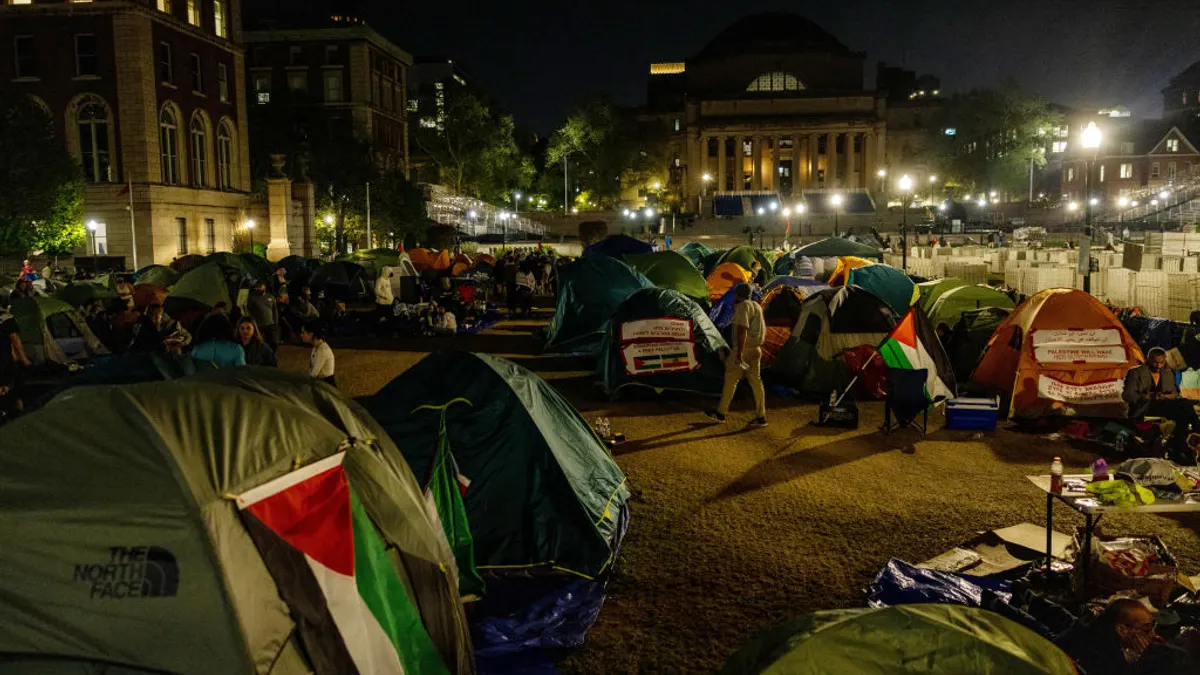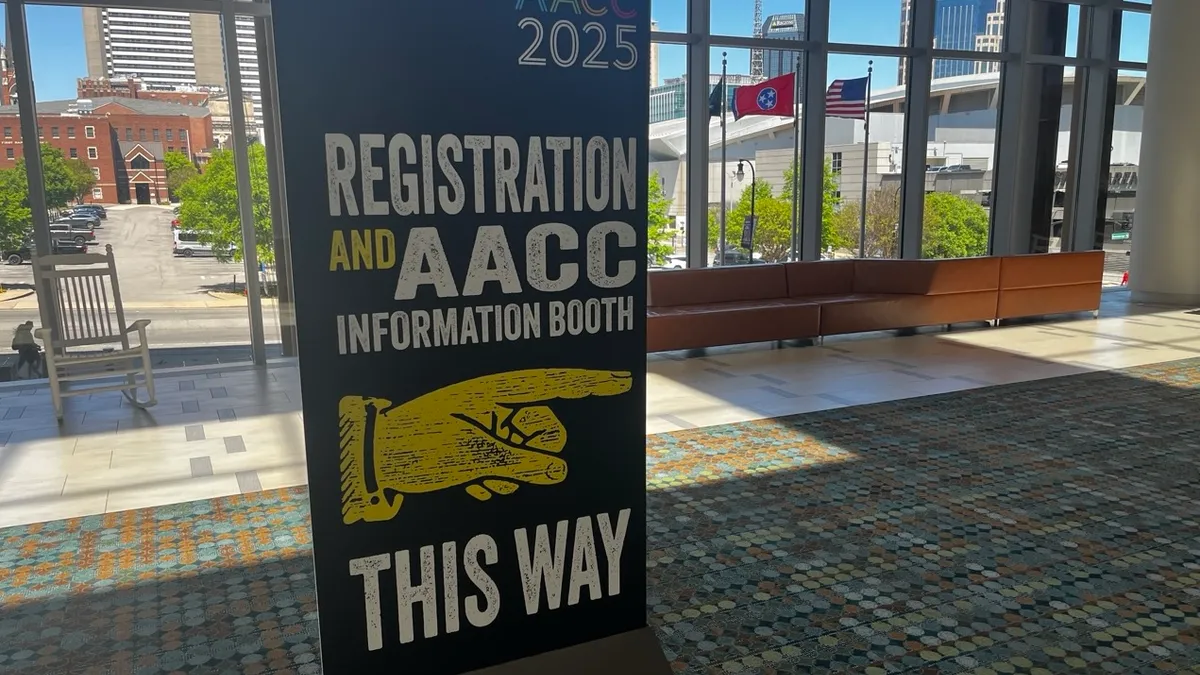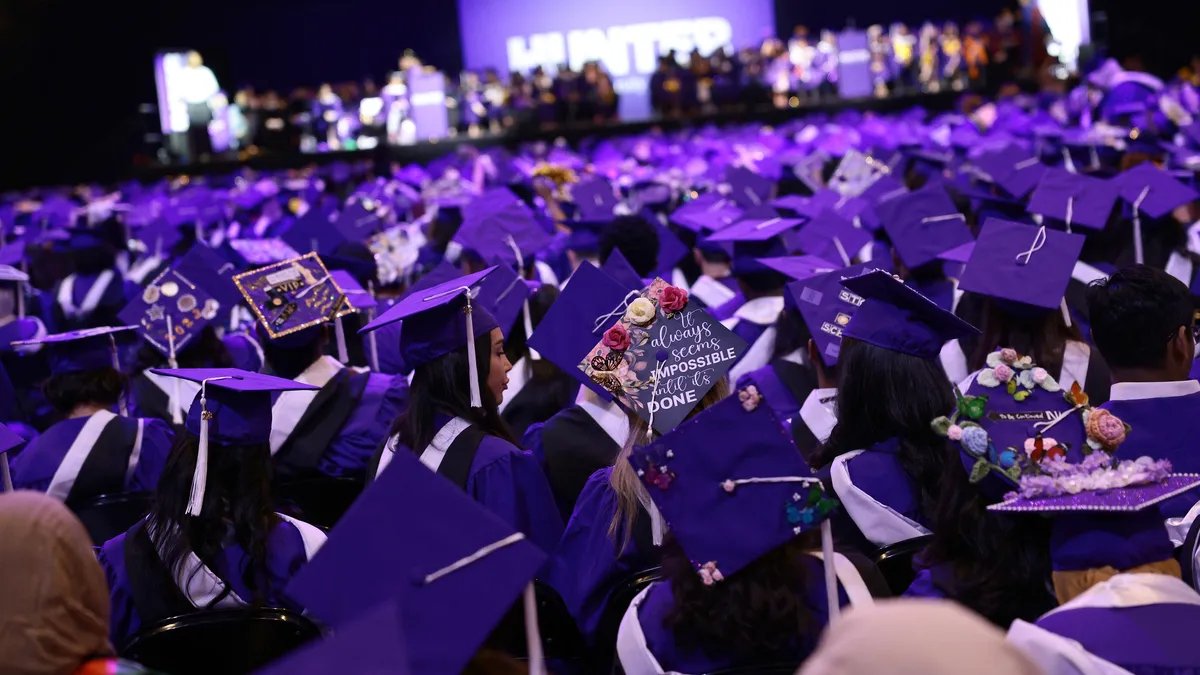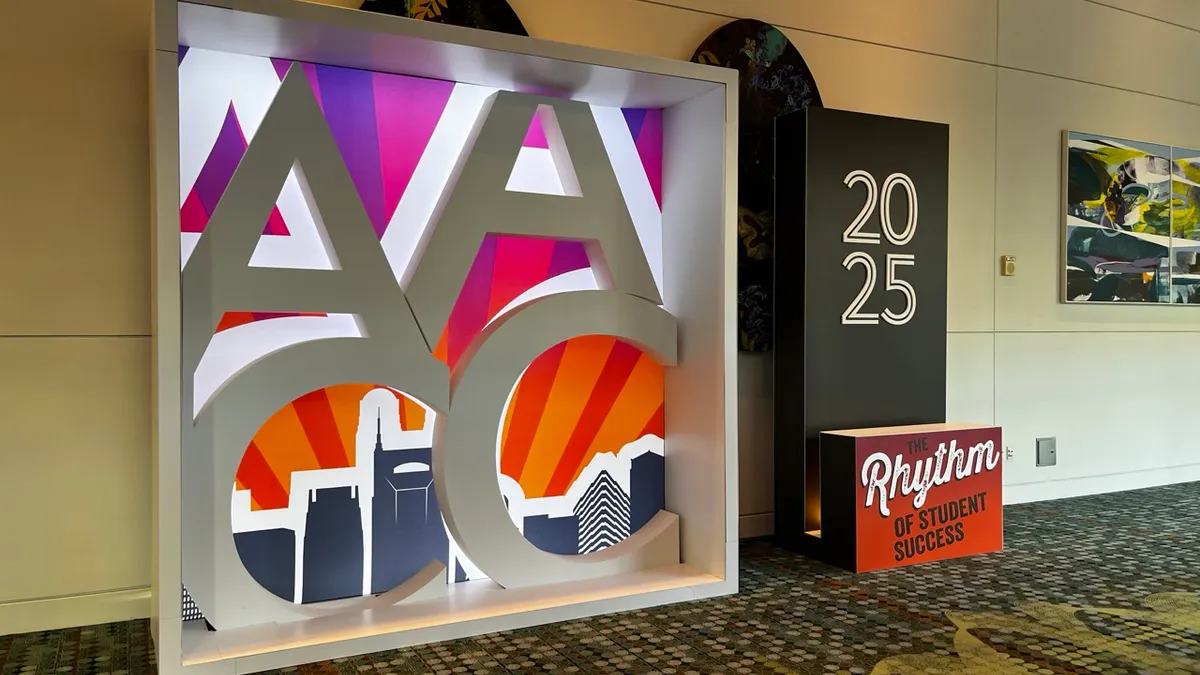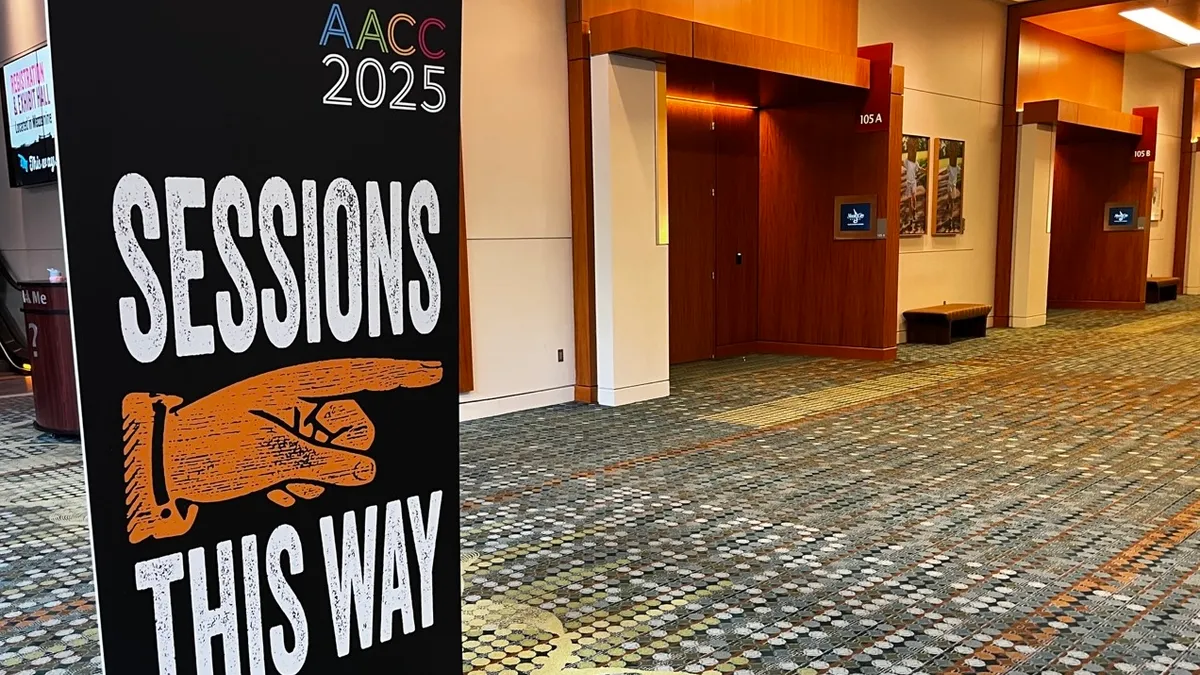After two stints as a paid intern at Liberty Mutual, Emily Woitas points to one simple, six-word phrase when asked about the best career advice she received on the job: Your network is your net worth.
"Everyone has been eager to meet with me to share their projects and career paths, which gave me a much better sense of what type of work I want to do," said Woitas, a former actuarial intern and analytics intern who will start full-time this July as an analytics associate at the insurer, in an email. "Through these unprecedented times, the support of your network can make an immeasurable difference."
The connections internships enable can be crucial for early-career job seekers, a group that watched their career prospects suddenly dry up thanks to the COVID-19 pandemic. Among all age groups, unemployment grew most for U.S. workers between the ages of 16 and 19 during the early months of the pandemic, according to Bureau of Labor Statistics data.
Woitas is one of many U.S. interns who saw their internships transition to virtual status last year; from tech giant Microsoft to mortgage financing company Fannie Mae, a segment of employers used the same remote work processes that facilitated business continuity for full-time employees to maintain internship programs.
Other interns were not as fortunate. An April 2020 survey of college students by College Reaction found more than one-third, 38%, saw their internships or post-graduate jobs canceled. Whatever the reasoning behind them, internship cancelations had a "super harmful" financial impact on those who graduated last spring, said Regina Monge, development and external relations lead at advocacy nonprofit Pay Our Interns.
In addition to the financial pressures of the pandemic, the logistical hurdles to setting up a remote internship may have contributed to cancelations or rescinded offers from employers last year, according to Andrew Crain, director of experiential professional development at the University of Georgia Graduate School.
But he noted that employers in most cases "put so much value on their talent pipelines" that outright cancelation might not have made sense from a recruiting standpoint. Instead, the temporary nature of the pandemic may have led organizations to keep internships going in order to meet post-pandemic talent needs, Crain said.
Though the status of internships is "somewhat in flux" as employers decide whether to continue operating their programs virtually or bring them back to in-person status, the nonprofit National Association of Colleges and Employers expects to see "about the same number of positions, maybe a fraction of a percent less" in 2021 as in 2020, said Edwin Koc, the organization's director of research, public policy and legislative affairs. Program expansion may be limited this year due to financial pressures, he added, "but not dramatically so."
Paid or unpaid?
Both paid and unpaid internships were impacted by the pandemic, Carlos Mark Vera, executive director and co-founder of Pay Our Interns, told HR Dive in an email, "but the real concern was the number of paid opportunities that either disappeared or became unpaid."
Statistics vary on what proportion of internships are actually paid. Crain authored a 2016 research report in collaboration with NACE in which he cited a NACE statistic that 60.8% of interns were paid. But the distribution of paid internships is uneven across different career paths. The executive summary of a 2019 NACE student survey showed, for example, that 52% of business majors and 39% of science, technology, engineering and mathematics majors were paid interns, compared to 20% of liberal arts majors and 14% of public services majors.
Advocates like Pay Our Interns also point to overrepresentation of U.S. racial and ethnic minorities in unpaid internship programs. HR Dive reported September 2020 on NACE survey data that showed Black students constituted 6.6% of graduating seniors surveyed but 7.3% of unpaid internships. Hispanic-American students represented 10% of respondents but 12.4% of students without an internship altogether. White students, 71% of those surveyed, represented 74% of paid interns and 71% of unpaid interns.
Even before COVID-19, researchers were documenting the barriers students face to attaining an internship. A 2019 report by the Center for College-Workforce Transitions, an affiliate organization of the University of Wisconsin-Madison School of Education, classified three types of internship attainment obstacles: financial, sociocultural and institutional.
At times, researchers found those obstacles intersected. For example, students at one rural-area historically Black college reported being interested in internship programs that required moving to another city, an "untenable" situation because the programs were either unpaid, did not provide housing assistance or both. The report also emphasized the importance of social connections in finding internships, including friends, family, former employers or volunteer experiences, a problem for those lacking such connections.
Employers may recognize that financial barriers in particular are "a great example" of what they can remove from their internship programs in order to diversify their talent pools, Crain said. Vera likewise noted that paid internships "create jobs, diversify talent pools, and if done equitably, can stop the reproduction of economic and racial disparities."
HR teams at employers can reach out to internal affinity groups for insight on the composition of internship programs, including compensation details, as well as the barriers underrepresented groups might face in applying for organizations' own programs, said Aaron Holt, member at management-side law firm Cozen O'Connor.
Aside from meeting D&I goals, paying interns may also make employers more competitive in attracting and retaining talent; "You don't want to turn off a potential full-time recruit by not paying them as an intern," Koc said. NACE's 2019 student survey found paid interns were "much more likely to have accepted a full-time offer by the time of this survey than are unpaid interns or never interns."
At the same time, unpaid internships may still have a place in the current job market. "It's a challenge to vilify unpaid internships because when things are tough, that's a strategy in the job seeker's toolkit, too," Crain said. Per Holt, unpaid internships could make sense for situations in which students wish to practice what they learn in school in a work environment for small amounts of time.
But Crain also noted that unpaid opportunities have led to exploitation in some cases. "I definitely advocate that paid internships are a good thing," he said.
Unpaid programs may also create a legal risk for employers, Holt said. Per a U.S. Department of Labor fact sheet, courts have identified a "primary beneficiary test" examining several factors to determine whether an intern or student is an employee under the Fair Labor Standards Act.
The 2021 outlook
Employers are converting a significant percentage of virtual interns to full-time roles this year, Koc said, which may be due to a couple of factors. "It could be that recruiting has been brutal and some of our employers may not be as confident in their recruiting operations in virtual as they were in finding these candidates to begin with," he said. "Another possibility is that the quality of work was better or perceived to be better."
Crain said that while it's "hard to argue" that the pandemic did not affect post-internship employment offers, observers are "only just now starting to understand what those numbers look like." In his work with graduate students, Crain observed that it is unlikely that such students change their majors or make other dramatic changes to their career goals, but they may have backup plans or evaluate different options just in case.
In terms of whether to continue internships in an online format moving forward, Koc said there is some hesitancy on the part of employers. Despite the successes some saw in moving to virtual, "I wouldn't say what we saw was a great satisfaction with the way virtual turned out," he added, particularly given the impact on intern-employee interactions.
Reopening decisions for full-time employees will be a large part of how employers move forward with internships, he said, even if the new normal looks something closer to a hybrid format; "If they decide to go fully in-person again, they want the intern to be fully in-person as well."









